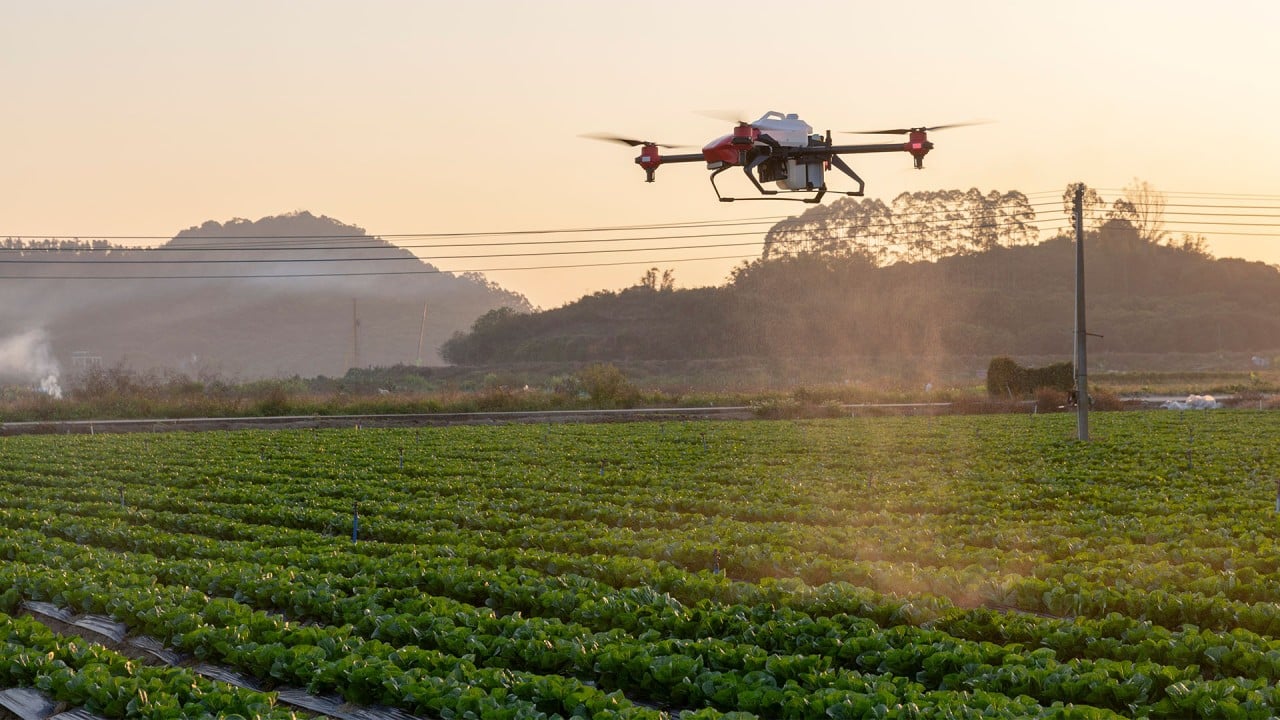Shanghai angles for acres of drone-grown crops with automated agriculture plan

Shanghai’s plan would begin with 12,000 mu of smart farms across eight townships by the end of the year, and fulfil the remainder of the goal by the end of 2025.
Unmanned farms would be equipped with intelligent tractors, planting machines, smart sprayers, drones and combine harvesters, the city said. A central cloud platform would manage and analyse data to maintain operations.
Successful projects, after passing assessment, will receive a reward of 700,000 yuan (US$97,522) per 1,000 mu from the municipal government, and would be eligible for an additional reward from the district up to the same amount.
China’s vision of modern agriculture is letting “ploughing cattle retire, ‘iron cattle’ work” as “farmers live in cities and experts stay to farm”, said agricultural engineer Luo Xiwen, a member of the Chinese Academy of Engineering, in an interview last month with Outlook Weekly, a publication of state news agency Xinhua.
Agricultural aviation – the use of unmanned vehicles in farming, an adaptation thought to improve efficiency and output – also “faces challenges” in terms of standards, regulations, core research and development, Luo was quoted as saying. “There is still a long way to go.”
Though it is one of China’s most highly developed urban settlements, Shanghai only produces enough grain to account for one-sixth of its own supply. It does, however, boast the country’s highest land use efficiency in grain production, producing an average of 534kg per mu in 2023, according to data from the Shanghai Economic and Information Technology Commission.
Other localities are exploring their own pilot programmes. A 1,000-mu demonstration area has begun operations on the state-owned Qixing Farm in Heilongjiang, the breadbasket province in the country’s northeast, the Economic Daily reported on Monday.
Heilongjiang governor Liang Huiling said at a news conference in April the province has set out to establish 20 large-scale unmanned farms by 2025.
Source link


